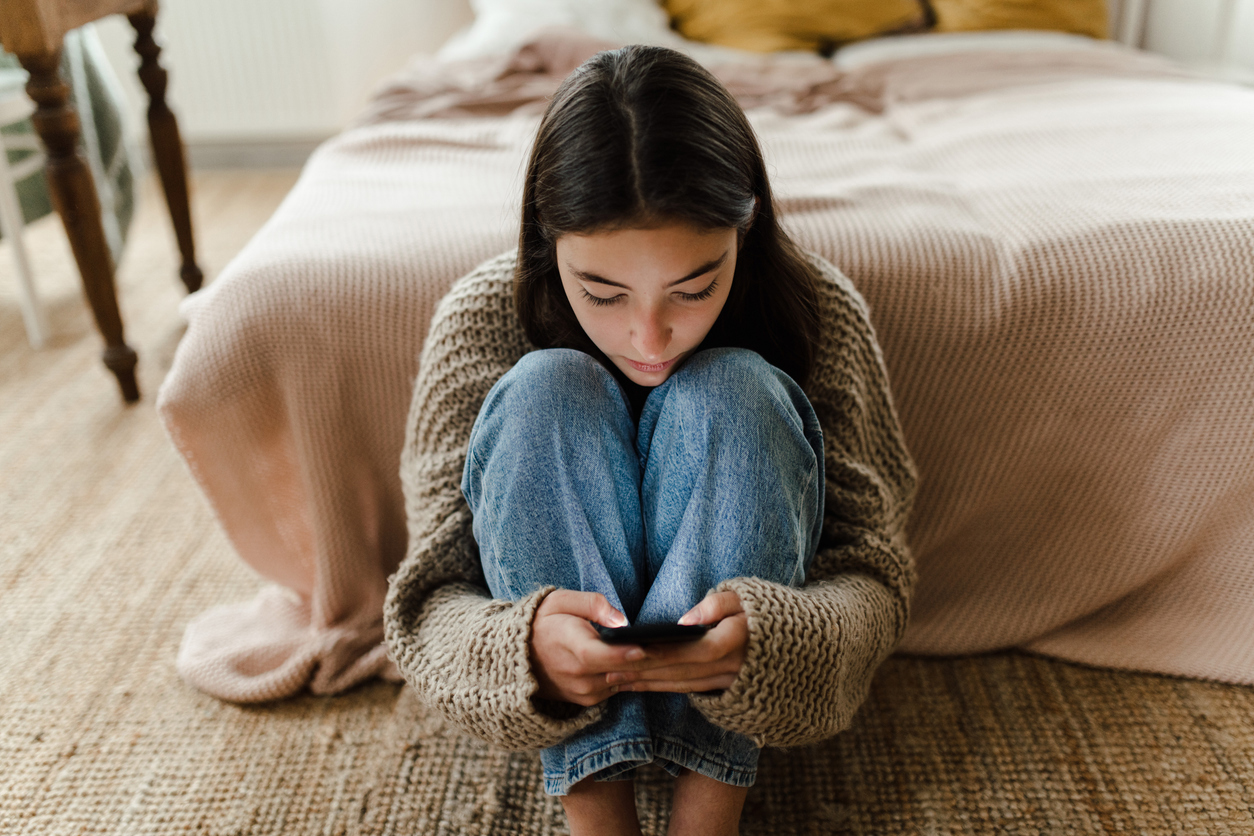
Mental health experts are pushing back against the government’s plan to implement a new minimum age for social media use, calling the proposed age bans simplistic and potentially damaging to young people’s mental health.
Prime Minister Anthony Albanese announced on Monday that the government wants to see restrictions in place for platforms like Instagram, TikTok and Snapchat by the end of the year in a bid to tackle youth mental health concerns.
More than 40 per cent of Year 12 students report higher than average symptoms of anxiety and depression, and suicide is the leading cause of death for people aged between 5 and 17.
READ MORE: Two children found dead at home in Blue Mountains
But Beyond Blue Spokesperson Luke Martin told 9News.com.au that social media was not solely to blame, nor will cutting off young people’s access to it fix the problem.
“In the last 15 years, we’ve seen a 50 per cent increase in rates of mental health conditions in young people, which is alarming and needs urgent attention,” he said.
“But the research isn’t settled on what’s causing this increase. Despite all the focus on social media, the research shows that it’s most likely a combination of lots of different factors.”
Have you got a story? Contact reporter Maddison Leach at mleach@nine.com.au
Headspace National Clinical Advisor Caroline Thain agrees and told 9News: “We need to think about things like climate change, poverty, the financial burden of living in today, the uncertainty of job security and the uncertainty that young people feel just thinking about their future.
“Not just narrowing it to social media.”
Social media can have a negative impact on youth mental health, especially when they’re exposed to potentially harmful content, but Martin fears age restrictions won’t actually make these platforms any safer.
The proposed age restrictions, which would see major social media companies fined for breaching the rules, would be hard to enforce and Martin predicts young people would just find ways around them.
“If it’s driven underground and it’s being used secretly, we’re worried that they won’t open up to adults in their life about what they’re experiencing,” he warned.
Meanwhile, children who don’t circumvent the bans could suffer a barrage of negative impacts as a result of being cut off from online connections and communities.
“Young people who are socially isolated or from a marginalised group often use social media to find others with a shared experience or a shared identity, and these online communities provide a sense of belonging that can be really protective for mental health,” Martin said.
“We just need to be careful. The unintended consequences of sweeping the social supports out from underneath vulnerable young people could be concerning.”
READ MORE: ‘Danger to our national security’: Retired generals issue dire Trump warning
Young people have complex relationships with social media and any policies about youth social media use should be made with the input of those most affected: actual young people.
“It’s really important that we don’t jump to simplistic solutions to more complex, complicated topics such as this one,” she said.
“Any policies that are affecting young people should have the voice of young people at their heart.”
Millions of young Aussies rely on social media to connect with peers and support networks, to develop better social skills, feel less isolated, learn about current events and new cultural and societal ideas and issues, bond with their friends, and have fun.
While there are certainly dangers on social media – from cyberbullying, to scams and explicit content – cutting young people off from these platforms entirely would cut them off from the positive aspects too.
READ MORE: Father tells bus driver of ‘irreparable void’ left after Hunter Valley bus crash
So it’s no surprise that young Aussies are vocally against the proposed new age limits – and Thain wants policy makers to listen up.
“I think we don’t give enough power to the voice of not just young people, but children,” she said.
“I don’t think it’s a helpful stance for older Australians to say, ‘we can make the decisions on their behalf,’ because they haven’t lived the life of this current generation. They don’t know what it’s like.”
Instead of implementing blanket age restrictions, Martin and Thain want to see the government focus on regulating social media platforms and making them safer for young people – no matter what age they start using them.
“The focus really needs to be on the social media platforms themselves and their responsibilities, and not let them off the hook too lightly” Martin said.
“Young people want more control over their algorithm. They want more control over their newsfeed. They want limits around how long they can scroll … [and] education around how to use social media in safe and positive ways.”
READ MORE: Touching gesture for family of baby scalded with hot coffee in Brisbane
He also wants to see more education for parents and teachers on how to foster and promote healthy social media use for young people.
“It’s really how you use social media that matters most, rather than whether you use it or not.”
As for the issue of youth mental health, Thain warns it’s much broader than social media use alone and if the government wants to improve the rates of depression and anxiety in Australia’s youth, a more nuanced discussion needs to be had.
FOLLOW US ON WHATSAPP HERE: Stay across all the latest in breaking news, celebrity and sport via our WhatsApp channel. No comments, no algorithm and nobody can see your private details.
links to content on ABC
9News





